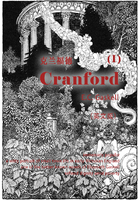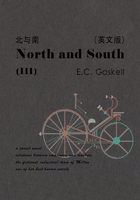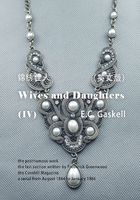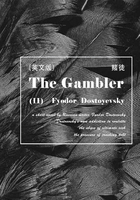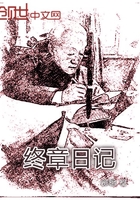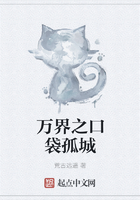As I said, all was normal in Midwich on the 26th. I have looked into the matter extensively, and can tell you where practically everyone was, and what they were doing that evening.
The Scythe and Stone, for instance, was entertaining its regulars in their usual numbers. Some of the younger villagers had gone to the pictures in Trayne-mostly the same ones who had gone there the previous Monday. In the post office Miss Ogle was knitting beside her switchboard, and finding, as usual, that real life conversation was more interesting than the wireless. Mr Tapper, who used to be a jobbing gardener before he won something fabulous in a football pool, was in a bad temper with his prized colour-television set which had gone on the blink again in its red circuit, and was abusing it in language that had already driven his wife to bed. Lights still burnt in one or two of the new laboratories shouldered on to The Grange, but there was nothing unusual in that; it was common for one or two Researchers to conduct their mysterious pursuits late into the night.
But although all was so normal, even the most ordinary-seeming day is special for someone. For instance, it was, as I have said, my birthday, so it happened that our cottage was closed and dark. And up at Kyle Manor it happened, also, to be the day when Miss Ferrelyn Zellaby put it to Mr Alan (temporarily Second-Lieutenant) Hughes that, in practice, it takes more than two to make an engagement; that it would be a friendly gesture to tell her father about it.
Alan, after some hesitation and demur, allowed himself to be persuaded into Gordon Zellaby's study to make him acquainted with the situation.
He found the master of Kyle Manor spread comfortably about a large armchair, his eyes closed, and his elegantly white head leaning against the chair's right wing, so that at first sight he appeared to have been lulled to sleep by the excellently reproduced music that pervaded the room. Without speaking, or opening his eyes, however, he dispelled this impression by waving his left hand at another easy chair and then putting his finger to his lips for silence.
Alan tiptoed to the indicated chair, and sat down. There then followed an interlude during which all the phrases that he had summoned to the tip of his tongue drained back somewhere beyond its root, and for the next ten minutes or so he occupied himself by a survey of the room.
One wall was covered from floor to ceiling by books which broke off only to allow the door by which he had entered. More books, in lower bookcases, ran round most of the room, halting in places to accommodate the french-windows, the chimney-piece, where flickered a pleasant though not quite necessary fire, and the record player. One of the several glass-fronted cases was devoted to the Zellaby Works in various editions and languages, with room on the bottom shelf for a few more.
Above this case hung a sketch in red chalk of a handsome young man who could, after some forty years, still be seen in Gordon Zellaby. On another case a vigorous bronze recorded the impression he had made on Epstein some twenty-five years later. A few signed portraits of other notable persons hung here and there on the walls. The space above and about the fireplace was reserved for more domestic mementoes. Along with portraits of Gordon Zellaby's father, mother, brother, and two sisters, hung likenesses of Ferrelyn, and her mother (Mrs Zellaby Number 1).
A portrait of Angela, the present Mrs Gordon Zellaby, stood upon the centre piece and focus of the room, the large, leather-topped desk where the Works were written.
Reminder of the Works caused Alan to wonder whether his timing might not have been more propitious, for a new Work was in process of gestation. This was made manifest by a certain distraitness in Mr Zellaby at present.
'It always happens when he's brewing,' Ferrelyn had explained. 'Part of him seems to get lost. He goes off on long walks and can't make out where he is and rings up to be brought home, and so on. It's a bit trying while it lasts, but it gets all right again once he eventually starts to write the book. While it's on, we just have to be firm with him, and see he has his meals, and all that.'
The room in general, with its comfortable chairs, convenient lights, and thick carpet, struck Alan as a practical result of its owner's views on the balanced life. He recalled that in While We Last, the only one of the Works he had read as yet, Zellaby had treated ascetism and over-indulgence as similar evidences of maladjustment. It had been an interesting, but, he thought, gloomy book; the author had not seemed to him to give proper weight to the fact that the new generation was more dynamic, and rather more clearsighted than those that had preceded it….
At last the music tied itself up with a neat bow, and ceased. Zellaby stopped the machine by a switch on the arm of his chair, opened his eyes, and regarded Alan.
'I hope you don't mind,' he apologized. 'One feels that once Bach has started his pattern he should be allowed to finish it. Besides,' he added, glancing at the playing-cabinet, 'we still lack a code for dealing with these innovations. Is the art of the musician less worthy of respect simply because he is not present in person? What is the gracious thing?-For me to defer to you, for you to defer to me, or for both of us to defer to genius-even genius at second-hand? Nobody can tell us. We shall never know.
'We don't seem to be good at integrating novelties with our social lives, do we? The world of the etiquette book fell to pieces at the end of the last century, and there has been no code of manners to tell us how to deal with anything invented since. Not even rules for an individualist to break, which is itself another blow at freedom. Rather a pity, don't you think?'
'Er, yes,' said Alan. 'I-er-'
'Though, mind you,' Mr Zellaby continued, 'it is a trifle détnodé even to perceive the existence of the problem. The true fruit of this century has little interest in coming to living-terms with innovations; it just greedily grabs them all as they come along. Only when it encounters something really big does it become aware of a social problem at all, and then, rather than make concessions, it yammers for the impossibly easy way out, uninvention, suppression-as in the matter of The Bomb.'
'Er-yes, I suppose so. What I-'
Mr Zellaby perceived a lack of fervour in the response.
'When one is young,' he said understandingly, 'the unconventional, the unregulated, hand-to-mouth way of life has a romantic aspect. But such, you must agree, are not the lines on which to run a complex world. Luckily, we in the West still retain the skeleton of our ethics, but there are signs that the old bones are finding the weight of new knowledge difficult to carry with confidence, don't you think?'
Alan drew breath. Recollections of previous entanglements in the web of Zellaby discourse forced him to the direct solution.
'Actually, sir, it was on quite another matter I wanted to see you,' he said.
When Zellaby noticed the interruptions of his audible reflections he was accustomed to take them in mild good part. He now postponed further contemplation of the ethical skeleton to inquire:
'But of course, my dear fellow. By all means. What is it?'
'It's that-well, it's about Ferrelyn, sir.'
'Ferrelyn? Oh yes. I'm afraid she's gone up to London for a couple of days to see her mother. She'll be back tomorrow.'
'Er-it was today she came back, Mr Zellaby.'
'Really?' exclaimed Zellaby. He thought it over. 'Yes, you're quite right. She was here for dinner. You both were,' he said triumphantly.
'Yes,' said Alan, and holding his chance with determination, he ploughed ahead with his news, unhappily conscious that not one stone of his prepared phrases remained upon another, but getting through it somehow.
Zellaby listened patiently until Alan finally stumbled to a conclusion with:
'So I do hope, sir, that you will have no objection to our becoming officially engaged,' and at that his eyes widened slightly.
'My dear fellow, you overestimate my position. Ferrelyn is a sensible girl, and I have no doubt whatever that by this time she and her mother know all about you, and have, together, reached a well-considered decision.'
'But I've never even met Mrs Holder,' Alan objected.
'If you had, you would have a better grasp of the situation. Jane is a great organizer,' Mr Zellaby told him, regarding one of the pictures on the mantel with benevolence. He got up.
'Well, now, you have performed your part very creditably; so I, too, must behave as Ferrelyn considers proper. Would you care to assemble the company while I fetch the bottle?'
A few minutes, with his wife, his daughter, and his prospective son-in-law grouped about him, he lifted his glass.
'Let us now drink,' announced Zellaby, 'to the adjunction of fond spirits. It is true that the institution of marriage as it is proclaimed by Church and state displays a depressingly mechanistic attitude of mind towards partnership-one not unlike, in fact, that of Noah. The human spirit, however, is tough, and it quite often happens that love is able to survive this coarse, institutional thumbing. Let us hope, therefore-'
'Daddy,' Ferrelyn broke in, 'it's after ten, and Alan has to get back to camp in time, or he'll be cashiered, or something. All you really have to say is "long life and happiness to you both".'
'Oh,' said Mr Zellaby. 'Are you sure that's enough? It seems very brief. However, if you think it suitable, then I say it, my dear. Most wholeheartedly I say it.'
He did.
Alan set down his empty glass.
'I'm afraid what Ferrelyn said was right, sir. I shall have to leave now,' he said.
Zellaby nodded sympathetically.
'It must be a trying time for you. How much longer will they keep you?'
Alan said he hoped to be free of the army in about three months. Zellaby nodded again.
'I expect the experience will turn out to have value. Sometimes I regret the lack of it myself. Too young for one war, tethered to a desk in the Ministry of Information in the next. Something more active would have been preferable. Well, good night, my dear fellow. It's-' He broke off, struck by a sudden thought. 'Dear me, I know we all call you Alan, but I don't believe I know your other name. Perhaps we ought to have that in order.'
Alan told him, and they shook hands again.
As he emerged into the hall with Ferrelyn he noticed the clock.
'I say, I'll have to step on it. See you tomorrow, darling. Six o'clock. Good night, my sweet.'
They kissed fervently but briefly in the doorway, and he broke away down the steps, bounding towards the small red car parked on the drive. The engine started and roared. He gave a final wave, and, with a spurt of gravel from the rear wheels, dashed away.
Ferrelyn watched the rear lights dwindle and vanish She stood listening until the erstwhile roar became a distant hum, and then closed the front door. On her way back to the study she noticed that the hall clock now showed ten-fifteen.
Still, then, at ten-fifteen nothing in Midwich was abnormal.
With the departure of Alan's car peace was able to settle down again over a community which was, by and large, engaged in winding up an uneventful day in expectation of a no less uneventful morrow.
Many cottage windows still threw yellow beams into the mild evening where they glistered in the dampness of an earlier shower. The occasional surges of voices and laughter which swept the place were not local; they originated with a well-handled studio-audience miles away and several days ago, and formed merely a background against which most of the village was preparing for bed. Many of the very old and very young had gone there already, and wives were now filling their own hot-water bottles.
The last customers to be persuaded out of The Scythe and Stone had lingered for a few minutes to get their night-eyes and gone their ways, and by ten-fifteen all but one Alfred Wait and a certain Harry Crankhart, who were still engaged in argument about fertilizers, had reached their homes.
Only one event of the day still impended-the passage of the bus that would be bringing the more dashing spirits back from their evening in Trayne. With that over, Midwich could finally settle down for the night.
In the Vicarage, at ten-fifteen, Miss Polly Rushton was thinking that if only she had gone to bed half an hour ago she could be enjoying the book that now lay neglected on her knees, and how much pleasanter that would be than listening to the present contest between her uncle and aunt. For, on one side of the room Uncle Hubert, the Reverend Hubert Leebody, was attempting to listen to a Third Programme disquisition on the Pre-Sophoclean Conception of the Oedipus Complex, while, on the other, Aunt Dora was telephoning. Mr Leebody, determined that scholarship should not be submerged by piffle, had already made two advances in volume, and still had forty-five degrees of knob turning in reserve. He could not be blamed for failing to guess that what was striking him as a particularly nugatory exchange of feminine concerns could turn out to be of importance. No one else would have guessed it, either.
The call was from South Kensington, London, where a Mrs Cluey was seeking the support of her lifelong friend Mrs Leebody. By ten-sixteen she had reached the kernel of the matter.
'Now, tell me, Dora-and, mind, I do want your honest opinion on this: do you think that in Kathy's case it should be white satin, or white brocade?'
Mrs Leebody stalled. Clearly this was a matter where the word 'honest' was relative, and it was inconsiderate of Mrs Cluey, to say the least, to phrase her question with no perceptible bias. Probably satin, thought Mrs Leebody, but she hesitated to risk the friendship of years on a guess. She tried for a lead.
'Of course, for a very young bride… but then one wouldn't call Kathy such a very young bride, perhaps…'
'Not very young,' agreed Mrs Cluey, and waited.
Mrs Leebody dratted her friends' importunity, and also her husband's wireless programme which made thinking and finesse difficult.
'Well,' she said at last, 'both can look charming, of course, but for Kathy I really think-'
At which point her voice abruptly stopped….
Far away in South Kensington Mrs Cluey joggled the rest impatiently, and looked at her watch. Presently she pressed the bar down for a moment, and then dialled O.
'I wish to make a complaint,' she said. 'Ihave just been cut off in the middle of a most important conversation.'
The exchange told her it would try to reconnect her. A few minutes later it confessed failure.
'Most inefficient,' said Mrs Cluey. 'Ishall put in a written complaint. I refuse to pay for a minute more than we had-indeed, I really don't see why I should pay for that, in the circumstances. We were cut off at ten-seventeen exactly.'
The man at the exchange responded with formal tact, and made a note of the time, for reference-22.17 hrs 26th Sept….

